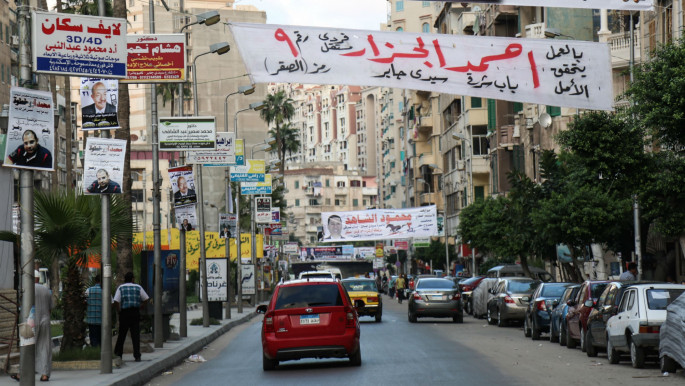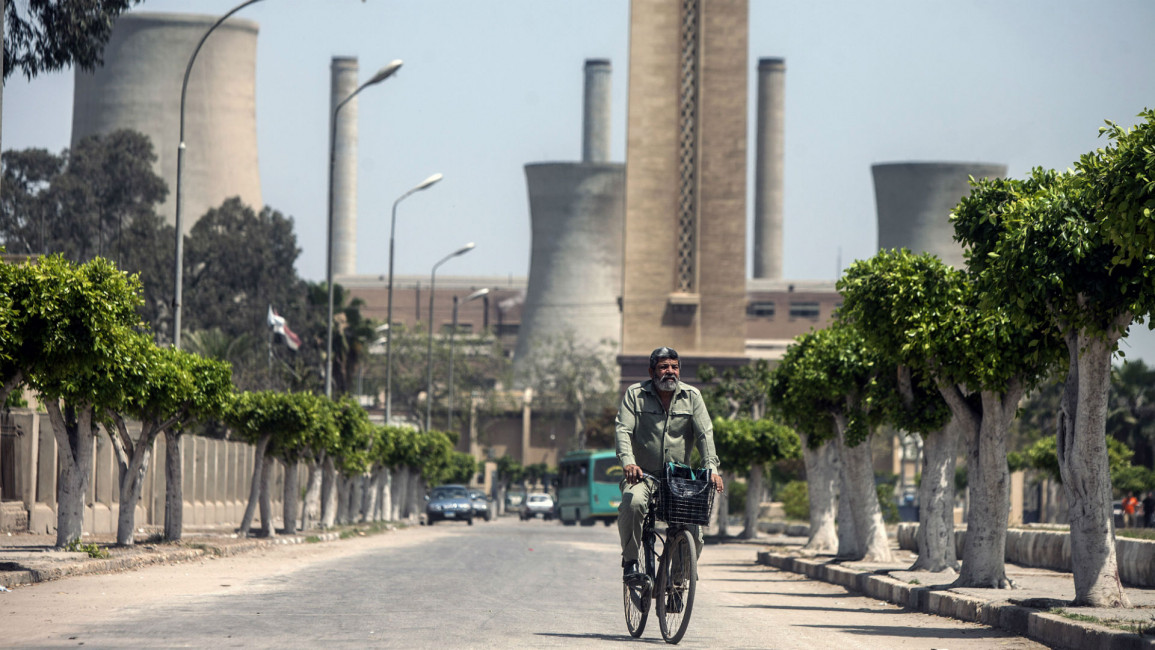Egypt's election likely to produce rubber stamp parliament
Workers in Egypt's biggest textile company see no glimmer of hope in the long-delayed upcoming parliamentary elections, which are set to kick off on October 18.
Employees of Misr Spinning and Weaving in the Nile Delta north of Cairo have complained the factory is suffering from serious shortcomings and believe the new parliament will do nothing to ease their qualms.
"The Company is suffering from mismanagement and poor marketing, we want the next parliament to put in place controls on everything in the factory," veteran factory worker Kamil Saeed told told Reuters' Arabic service.
| Do you think privatisation policies come will come to an end with parliament mostly made up of businessmen? - Kamal al-Fayyoumi |
"Candidates always come before the elections and make grandiose promises but when the polls close they are never seen again and nothing is actually achieved," the 45-year-old added.
The factory was the focus of protests in 2008 that sparked a wave of strikes now widely seen as a catalyst for the revolution that ended the rule of former president Hosni Mubarak in 2011.
Worker's rights activist Kamal al-Fayyoumi said: "The company used to be the number one bastion of industry in Egypt and the Middle East but it's now been ruined by deliberate losses."
The 50-year-old added that sees no hope from elections because the majority the candidates are members of Mubarak's dissolved political party or well-connected businessmen, with no labour unionists taking part.
Fayyoumi has tirelessly worked to resist nationwide trends to privatise the publicly owned textile company.
"Do you think privatisation policies come will come to an end with parliament mostly made up of businessmen? We're hoping for a miracle but age of miracles has finished," added the activist, who was imprisoned during the 2008 strike.
"The government says it's fighting terrorism but we think there's a more dangerous form of terrorism happening: corruption,"
"The terrorism of corruption is when workers are not given adequate pensions and young people are forced to board death boats heading to Europe because there're no jobs in Egypt," said Fayyoumi.
According to Egypt's ministry of manpower, Egypt witnessed 287 separate labour protests during 2014, and a total of 115,000 workers had participated in industrial action last year.
Rubber stamp parliament
The much-delayed election - the previous assembly was dissolved in June 2012 - will take place in two phases between October 18 and December 2.
 |
|
| The election will take place in two phases [Getty] |
Former army chief Sisi won the 2014 presidential election despite having no political party of his own, and insists he has no political allies.
But experts have said most of the more than 5,000 candidates overwhelmingly back him.
Voting for the new parliament, the first since former president Mohammad Morsi was ousted, will take place in the absence of any real opposition. Several secular and leftist movements which have also been targeted in the crackdown are boycotting the election.
Low turnout among young people will likely to be a key feature of the elections.
"The turnout in will be low in general, especially among young people," Yusri al-Azbawi, a researcher at the al-Ahram Centre for Political and Strategic Studies, toldal-Araby's Arabic service.
"A large amount of people between the ages of 25 and 40 will not go to the polls because the political atmosphere is not conducive of that," Azbawi added.
With Morsi's Muslim Brotherhood blacklisted as a "terrorist organisation" and its members banned from contesting elections, the only Islamist party running is the ultra-conservative al-Nour Party, which allied with Sisi.



